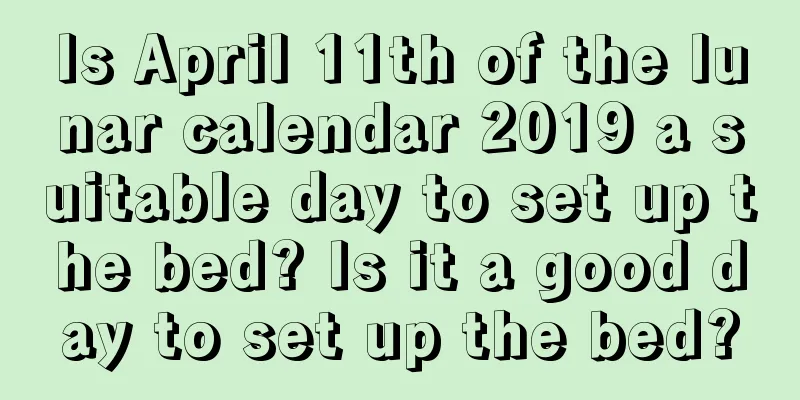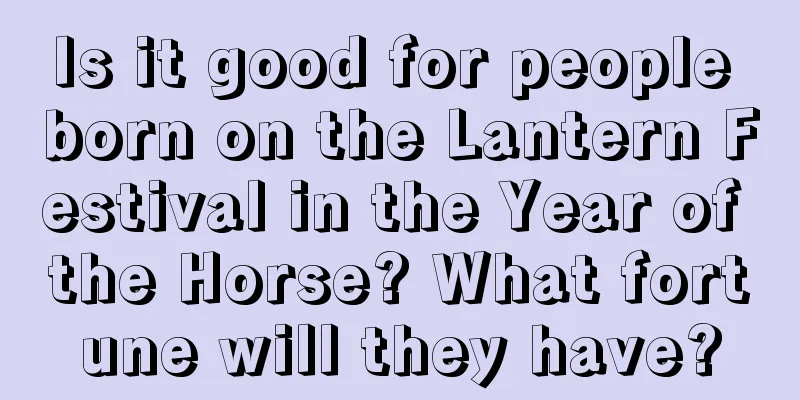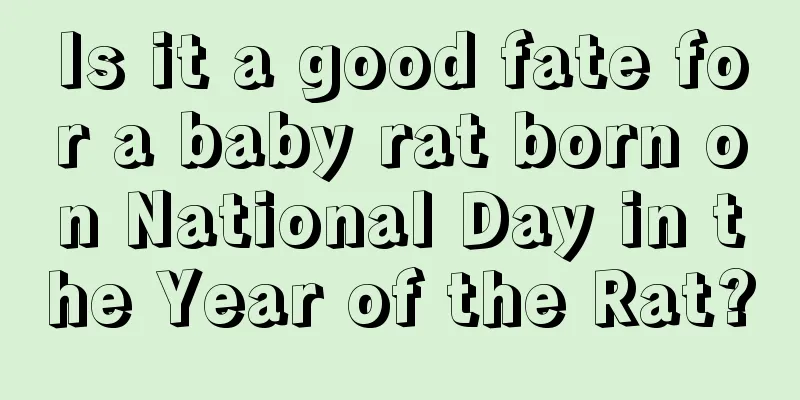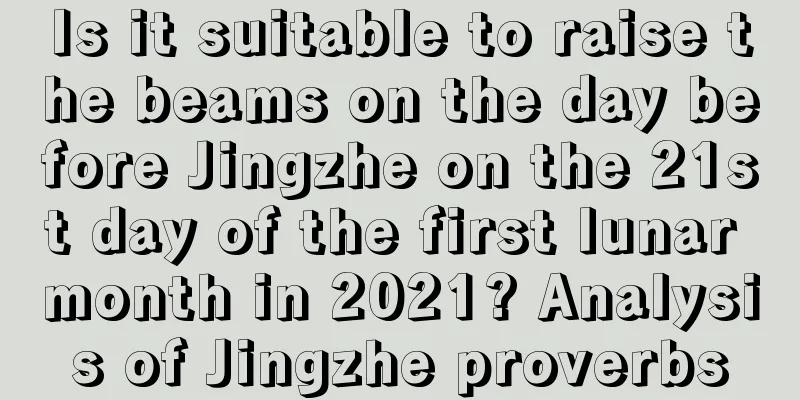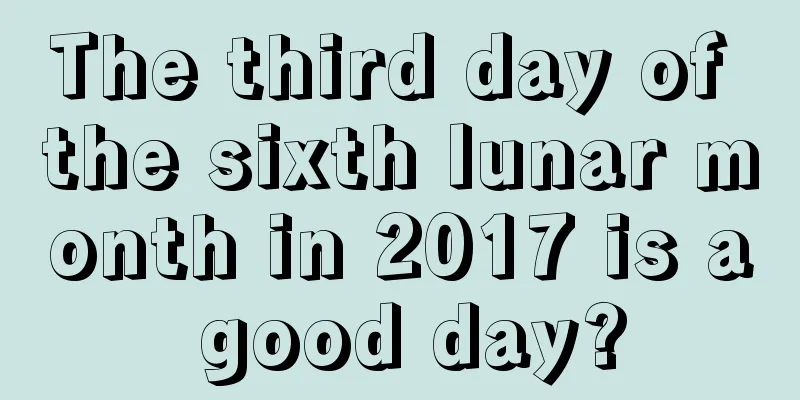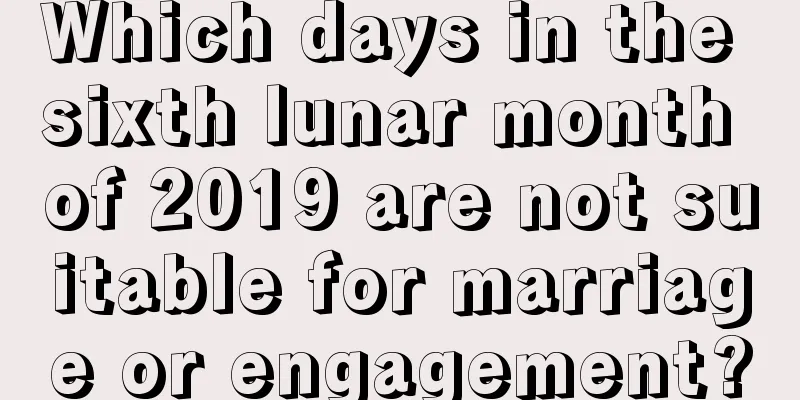Is Laba Festival on the eighth day of the twelfth lunar month in 2018 suitable for sacrifices? What is the origin of Laba Festival?

Introduction: In our country’s tradition, auspicious days are chosen before many things are arranged. So is Laba Festival on the eighth day of the twelfth lunar month in 2018 suitable for sacrifices? What is the origin of Laba Festival? The twelfth month of the lunar calendar is the twelfth month, commonly known as the end of the year, and is also known as Ladong, Candong, Qiongdong, Layue, and Bingyue. Let’s go to Shuimoxiansheng.com to check out the relevant content for the twelfth month of the lunar calendar in 2018.Is Laba Festival on the eighth day of the twelfth lunar month in 2018 suitable for sacrifices? What is the origin of Laba Festival?2018 Lunar New Year's Day Laba Festival Almanac Query:December 8, 2018 (Lunar calendar)January 13, 2019, Sunday, Capricorn (solar calendar) 【Today’s lunar calendar is suitable】 Pray for blessings, get married, migrate, bring in wealth, move into a new house, set up a bed, build a stove, accept marriage proposals, build houses, fast and offer sacrifices, take up a post, seek offspring, erect pillars, raise beams, plant, bring in livestock, catch animals, and go to school [Today’s taboos in the almanac] Grave repair and burial, opening warehouse, drilling, travel meridian, groundbreaking, opening Based on the above contents of the lunar calendar, we can know that Laba Festival on the eighth day of the twelfth lunar month in 2018 is a suitable day for sacrifices! Analysis of the Origin of Laba FestivalSince ancient times, Laba Festival has been a sacrificial ceremony for worshiping ancestors and gods (including door gods, household gods, house gods, kitchen gods, and well gods) to pray for a good harvest and good luck. According to the "Book of Rites: Suburban Sacrifices", the La Festival is "in the twelfth month of the year, when all things are gathered together and offered a feast." The La Day was called "Jiaping" in the Xia Dynasty, "Qingsi" in the Shang Dynasty and "Dala" in the Zhou Dynasty; because it was held in December, that month was called the La Month and the day of the La Festival was called the La Day. In the pre-Qin period, Laba Festival was on the third Xu day after the winter solstice. Later, when Buddhism was introduced, in order to expand its influence in the local area, it attached to traditional culture and designated Laba Festival as the day of Buddha's enlightenment. Later, as Buddhism became popular, the Buddha's Enlightenment Day was merged with the La Festival, and it was called the "Dharma Treasure Festival" in the Buddhist field. It was not until the Northern and Southern Dynasties that it was fixed on the eighth day of the twelfth lunar month."Shuowen Jiezi" records: "On the third Xu day after the winter solstice, sacrifices are offered to all gods." It can be seen that the third Xu day after the winter solstice was once the La Day. Later, due to the intervention of Buddhism, the La Day was changed to the eighth day of the twelfth lunar month, and it has become a custom since then. |
Recommend
Is February 23rd of the lunar calendar 2020 an auspicious day for funerals?
Is February 23rd of the lunar calendar 2020 an aus...
Where is the God of Wealth in the Frost Descent solar term of 2018?
Frost's Descent usually falls on October 23rd ...
Is it not suitable to set up the bed on the 23rd day of the first lunar month in 2020? What is the career hexagram like on February 16th?
Introduction: You also need to choose an auspiciou...
Will primary school students have a holiday on Women’s Day 2021? What impact does Women's Day have on China?
For primary school students, they are also very co...
Is the tenth day of the fifth lunar month in 2017 a good day? Is it okay to get a marriage certificate?
Introduction: In our country, when planning big ev...
What is the fate of a girl born in the twelfth month of the Chinese Zodiac sign of the Pig?
Girls born in the Year of the Pig are gentle and l...
What should we do and avoid during the Flower Festival in 2019? What to eat during the Flower Festival?
What should we do and avoid during the Flower Fest...
List of auspicious days suitable for ancestor worship in December of the lunar calendar in 2018!
Introduction: Ancestor worship is an important mat...
Is the Labor Day on March 27th of the lunar calendar in 2019 a suitable date for burying the deceased?
Introduction: Burial is also a very important matt...
When is the Spring Equinox? Is the Spring Equinox 2020 a good time?
A year's plan begins in spring, and the Spring...
What is the fate of a boy born on December 12th of the lunar calendar in 2020, the Year of the Rat?
What is the fate of a boy born on December 12th of...
Is the eighth day of the eighth lunar month in 2022 an auspicious day? What does the hexagram indicate?
Doing the right thing at the right time is the dre...
Is the fate of a boy born on October 20, 2019 in the lunar calendar good or bad?
Is the fate of a boy born on October 20, 2019 in t...
Will it rain during the Spring Equinox? Is the Spring Equinox the beginning or the end of spring?
The vernal equinox arrives with the warm spring b...
Is November 25th of the lunar calendar in 2020 an auspicious day for praying?
When it comes to praying, our instinct is to pray ...



